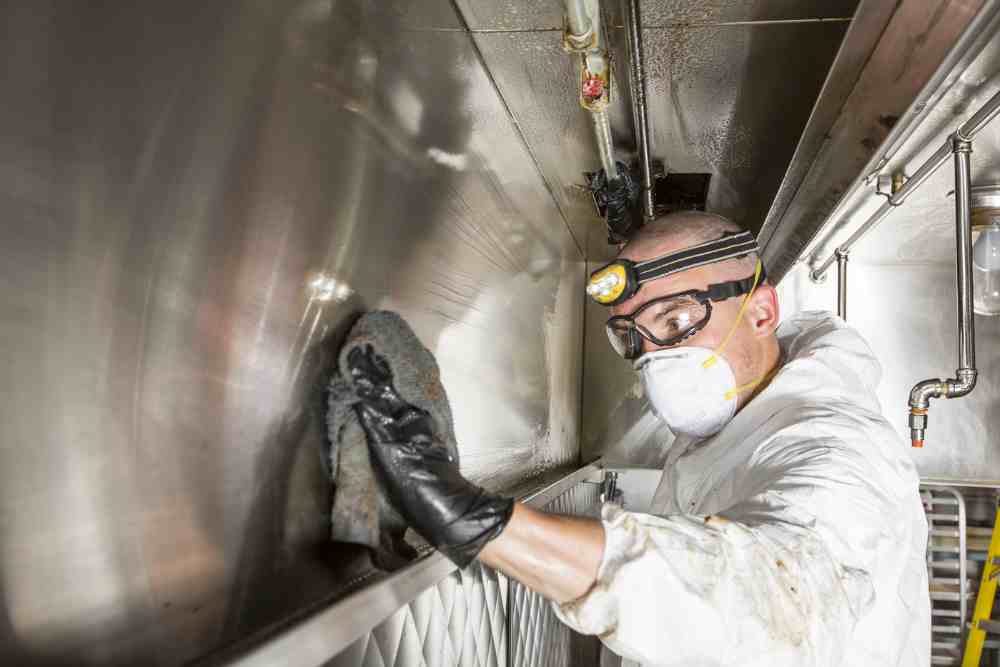Table of Contents
- Best Practices for Commercial Kitchen Hood Cleaning
- The Importance of Commercial Kitchen Hood Cleaning
- Best Practices for Commercial Kitchen Hood Cleaning
- 1. Establish a Cleaning Schedule
- 2. Hire Professional Hood Cleaning Services
- 3. Use Proper Cleaning Techniques and Products
- 4. Maintain Proper Documentation
- 5. Educate and Train Kitchen Staff
- Frequently Asked Questions
Best Practices for Commercial Kitchen Hood Cleaning

Commercial kitchen hood cleaning is an essential task that ensures the safety and efficiency of any food service establishment. Neglecting proper cleaning and maintenance of kitchen hoods can lead to a variety of issues, including fire hazards, health code violations, and decreased ventilation efficiency. In this article, we will explore the best practices for commercial kitchen hood cleaning, providing valuable insights and tips for maintaining a clean and safe kitchen environment.
The Importance of Commercial Kitchen Hood Cleaning
Commercial kitchen hoods play a crucial role in maintaining a safe and healthy environment in food service establishments. They are designed to remove smoke, grease, and other airborne contaminants from the cooking area, preventing the accumulation of harmful substances that can compromise air quality and pose a fire hazard. Regular cleaning of kitchen hoods is essential to ensure their optimal performance and prevent potential risks.
Here are some key reasons why commercial kitchen hood cleaning is of utmost importance:
- Fire Prevention: Grease buildup in kitchen hoods can easily ignite and cause a fire. According to the National Fire Protection Association (NFPA), cooking equipment is the leading cause of structure fires in restaurants. Regular cleaning of kitchen hoods helps remove grease and reduces the risk of fire.
- Health and Safety Compliance: Health codes and regulations require food service establishments to maintain clean and properly functioning kitchen hoods. Failure to comply with these regulations can result in fines, closure, or even legal action.
- Improved Air Quality: Kitchen hoods remove smoke, steam, and odors from the cooking area, improving the overall air quality in the kitchen. Regular cleaning ensures that the hood effectively filters out contaminants, preventing them from spreading throughout the establishment.
- Enhanced Ventilation Efficiency: A clean kitchen hood allows for better airflow and ventilation, which is crucial for maintaining a comfortable working environment for kitchen staff. Improved ventilation also helps prevent the buildup of heat and humidity, reducing the risk of mold and mildew growth.
Best Practices for Commercial Kitchen Hood Cleaning
Now that we understand the importance of commercial kitchen hood cleaning, let’s explore the best practices to ensure effective and thorough cleaning:
1. Establish a Cleaning Schedule
Creating a regular cleaning schedule is essential to ensure that kitchen hoods are cleaned at appropriate intervals. The frequency of cleaning depends on the volume of cooking and the type of food being prepared. High-volume kitchens may require more frequent cleaning, while low-volume kitchens can have longer intervals between cleanings.
It is recommended to consult local health codes and regulations to determine the minimum cleaning frequency required for your establishment. Additionally, consider the manufacturer’s recommendations for your specific kitchen hood model.
2. Hire Professional Hood Cleaning Services
While regular maintenance and cleaning can be performed by kitchen staff, it is highly recommended to hire professional hood cleaning services for a thorough and comprehensive cleaning. Professional cleaners have the expertise, equipment, and knowledge to effectively remove grease and other contaminants from kitchen hoods.
When selecting a hood cleaning service, ensure that they are certified and experienced in commercial kitchen hood cleaning. Look for companies that follow industry standards and regulations, such as the guidelines set by the National Fire Protection Association (NFPA) and the International Kitchen Exhaust Cleaning Association (IKECA).
3. Use Proper Cleaning Techniques and Products
Proper cleaning techniques and products are crucial for effective kitchen hood cleaning. Here are some best practices to follow:
- Disassemble and Clean All Components: Remove and clean all removable components of the kitchen hood, including filters, grease cups, and baffles. Soak them in a degreaser solution to remove grease buildup effectively.
- Scrape and Degrease Hood Surfaces: Use a scraper to remove heavy grease deposits from the interior and exterior surfaces of the hood. Apply a degreaser solution and scrub with a brush to remove any remaining grease.
- Steam Clean or Pressure Wash: For a thorough cleaning, consider using steam cleaning or pressure washing equipment to remove stubborn grease and dirt. These methods can effectively reach areas that are difficult to access manually.
- Inspect and Clean Exhaust Ducts: Regularly inspect and clean the exhaust ducts connected to the kitchen hood. Grease buildup in the ducts can restrict airflow and increase the risk of fire.
- Use Non-Toxic Cleaning Products: Choose cleaning products that are safe for food preparation areas and environmentally friendly. Avoid using harsh chemicals that can leave residues or damage the hood surfaces.
4. Maintain Proper Documentation
Keeping proper documentation of kitchen hood cleaning is essential for compliance and record-keeping purposes. Maintain a logbook that records the date of each cleaning, the cleaning method used, and any issues or recommendations identified during the cleaning process.
Documentation can help demonstrate compliance with health codes and regulations during inspections and audits. It also serves as a reference for future cleanings and maintenance.
5. Educate and Train Kitchen Staff
Proper education and training of kitchen staff are crucial for maintaining a clean and safe kitchen environment. Train staff on the importance of kitchen hood cleaning, the proper cleaning techniques, and the signs of potential issues or malfunctions.
Regularly remind staff to clean up spills and grease immediately to prevent them from entering the kitchen hood. Encourage a culture of cleanliness and responsibility among the kitchen staff to ensure the longevity and efficiency of the kitchen hood.
For professional hood cleaning services in Ontario, visit Ontario Hood Cleaning.
Frequently Asked Questions

1. How often should commercial kitchen hoods be cleaned?
The frequency of commercial kitchen hood cleaning depends on the volume of cooking and the type of food being prepared. High-volume kitchens may require cleaning every three months, while low-volume kitchens can have longer intervals between cleanings. It is recommended to consult local health codes and regulations to determine the minimum cleaning frequency required for your establishment.
2. Can I clean my commercial kitchen hood myself?
While regular maintenance and cleaning can be performed by kitchen staff, it is highly recommended to hire professional hood cleaning services for a thorough and comprehensive cleaning. Professional cleaners have the expertise, equipment, and knowledge to effectively remove grease and other contaminants from kitchen hoods.
3. How can I ensure that my kitchen hood is functioning properly?
Regular inspections and maintenance are essential to ensure that your kitchen hood is functioning properly. Look for signs of grease buildup, unusual noises, or decreased ventilation efficiency. If you notice any issues, contact a professional hood cleaning service or a qualified technician to inspect and repair the hood.
4. What are the consequences of not cleaning a commercial kitchen hood regularly?
Failure to clean your hood regularly can have serious consequences. Accumulated grease and debris in the exhaust system can pose a significant fire hazard. According to the NFPA, nearly one-third of restaurant fires are caused by grease buildup. In addition to the fire risk, a dirty hood can also lead to poor ventilation, unpleasant odors, and decreased efficiency of your kitchen exhaust system.
5. How can I ensure the hood cleaning service is reliable?
To ensure the reliability of a hood cleaning service, consider the following factors:
- Check their certifications and insurance coverage.
- Read customer reviews and testimonials.
- Inquire about their experience and track record.
- Ask for references from previous clients.
- Ensure they follow industry standards and guidelines.
By conducting thorough research and asking the right questions, you can select a reliable and professional hood cleaning service that meets your specific needs.
For professional hood cleaning services in Ontario, visit Ontario Hood Cleaning.
- Best Practices for Commercial Kitchen Hood Cleaning
- hood cleaning
- kitchen exhaust cleaning
- restaurant hood cleaning






